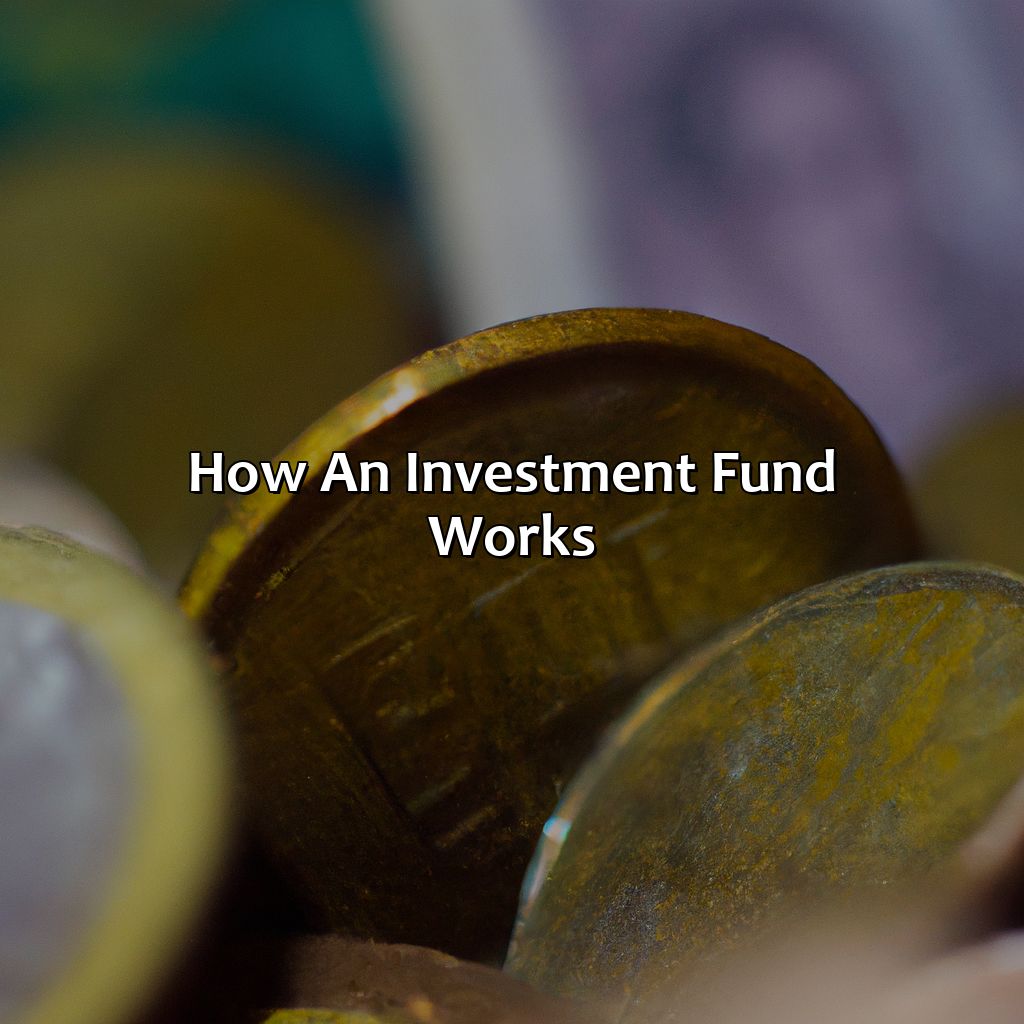How An Investment Fund Works?
Key Takeaway:
- Investment funds pool money from individual investors to invest in a diversified portfolio of assets, managed by professional fund managers. This allows individual investors to access a wider range of investment opportunities than they would be able to invest in on their own.
- There are different types of investment funds, including mutual funds, exchange-traded funds (ETFs), and hedge funds, each with its own investment objectives, strategies, and risk profiles. Investors should research and choose funds that align with their investment objectives, risk tolerance, and investment horizon.
- The advantages of investing in investment funds include diversification, professional management, lower investment minimums, and flexibility in terms of purchase and sale. However, investors should also be aware of the fees and expenses associated with investment funds, as well as the risks and potential limitations of investment funds.
Are you thinking of creating an investment fund but unsure how it works? Get all the vital information you need to make an informed decision with this article on understanding the basics of an investment fund. You’ll soon discover why it’s become an increasingly popular choice for wealth building.
What is an Investment Fund?
To grasp what an investment fund is, you must explore its details. These include the different types and advantages of investing in them. Let’s look more closely at these topics to help you ascertain if an investment fund is suitable for you and how it works.
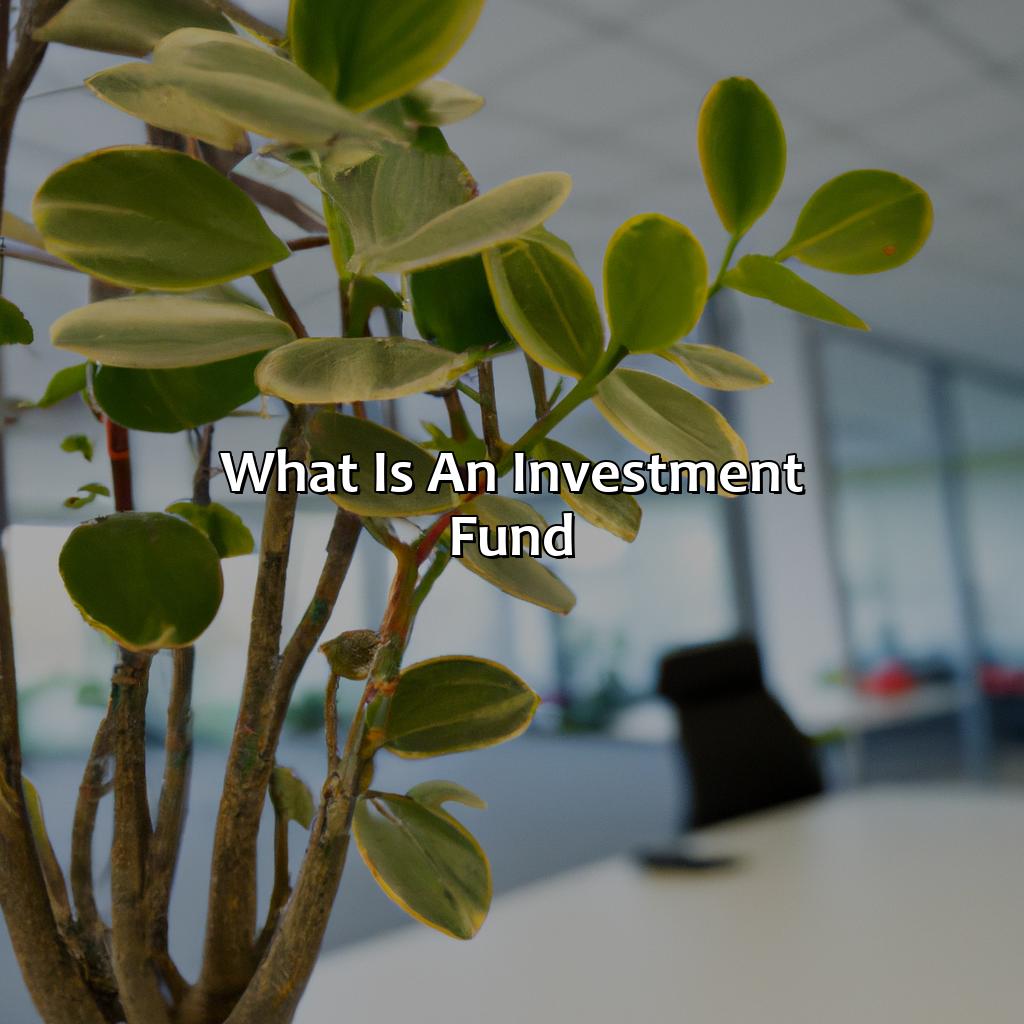
Image credits: retiregenz.com by Joel Washington
Types of Investment Funds
Investment Funds are a diversified option for investors looking to pool their money together and access assets that may not be available to individual investors. There are various categories of Investment Funds, including mutual funds, exchange-traded funds (ETFs), hedge funds, real estate investment trusts (REITs), and private equity funds.
- Mutual Funds: These are professionally managed funds consisting of a portfolio of stocks, bonds or other securities that meet their investment objectives.
- Exchange-Traded Funds (ETFs): ETFs trade on stock exchanges and can be bought and sold throughout the day just like stocks.
- Hedge Funds: They are only accessible to accredited investors given their unregulated nature. Hedge fund managers use complex strategies and techniques in an attempt to generate high returns for their clients.
- Real Estate Investment Trusts (REITs): REITs offer individual investors income generating opportunities through a pool of commercial real estate properties including apartments, office buildings, hotels and more.
- Private Equity Funds: They invest in privately held companies that require capital for growth or restructuring while allowing their investors the chance to gain from equity appreciation over time.
Investment Fund fees vary widely – most notably expense ratios differ among fund types. Some factors affecting the expense ratio include the size of the fund asset base, the level of active management needed to maintain the strategy or approach used by the fund manager.
Pro Tip: Before investing in any type of Investment Fund always review the fund prospectus which describes important details about risks associated with investing in that fund.
Investing in an investment fund is like having a personal finance team, without having to share your snacks with them.
Advantages of Investing in Investment Funds
Investment funds have several benefits that attract investors. These funds pool money from different individuals and invest in diverse portfolios. Here are five advantages of investing in investment funds:
- Reduces Risk – Diversification across various instruments helps reduce the risk involved with a single stock or bond.
- Professional Management – Expert fund managers manage your portfolio with their experience and skills to navigate uncertain market conditions successfully.
- Liquidity – Investment funds provide redemption options that enable you to withdraw your investment anytime without any penalties easily.
- Cost-effective – Pooling money allows for cost-sharing towards research, marketing, and finance expenses which leads to lower fees for individual investors.
- Potential for Higher Returns – Investing in different markets enables optimal returns on investments compared to investing in one sector alone.
Additionally, distinguishing features like payout frequency, capital appreciation options, and tax benefits make them popular among diversified investors’ community.
It’s remarkable that George Soros created Quantum Fund, one of the famous hedge funds globally, initiated his journey as an investor through mutual funds. He committed to studying fundamentals while greatly benefiting from diversification provided by the fund.
Think of investment funds like a potluck dinner party, where everyone chips in a little something and gets to enjoy a variety of dishes without having to cook everything themselves.
How Investment Funds Work
Grasp the important players involved for understanding an investment fund. In this section, we dive into details of fund managers, asset allocation, fees and expenses. These are key elements and impact how an investment fund works.
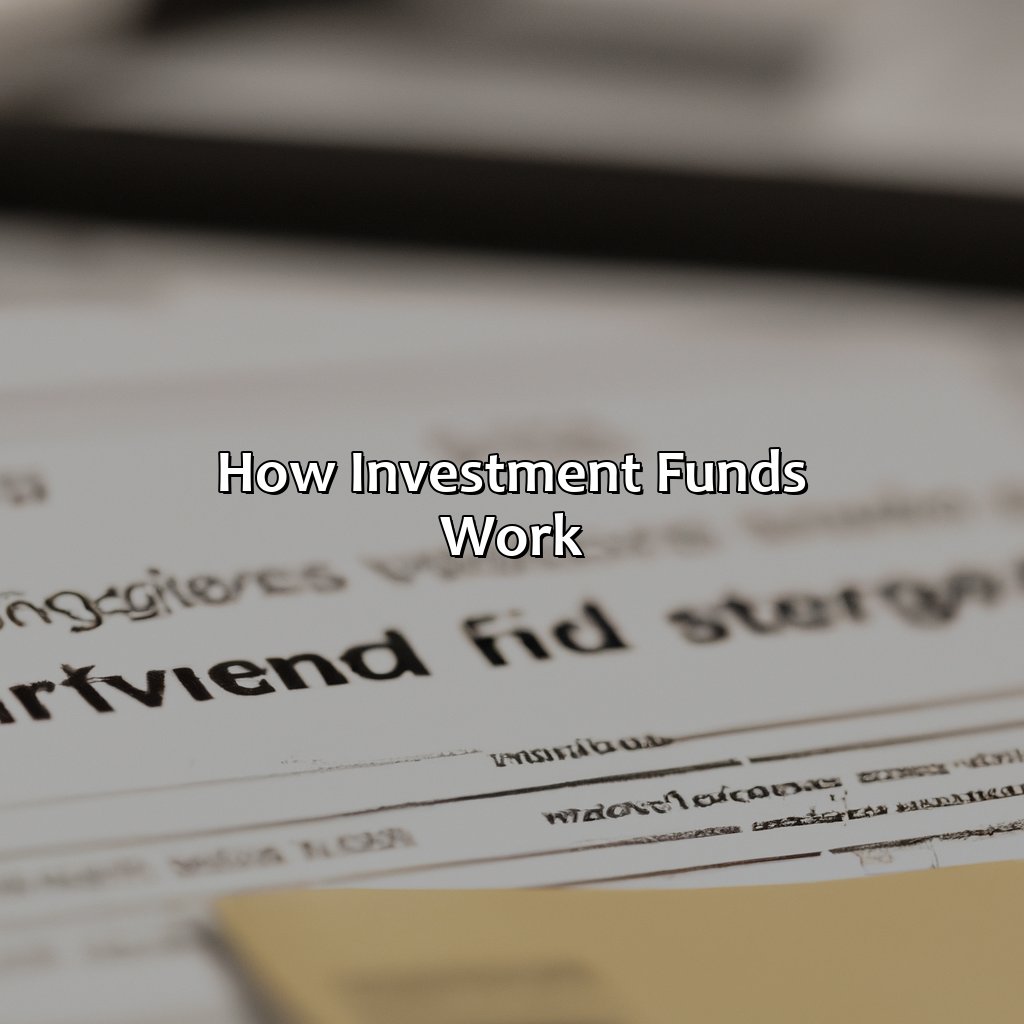
Image credits: retiregenz.com by Harry Duncun
Investment Fund Managers
The masterminds behind the operation, Investment Fund Strategists plan, develop and execute investment strategies for mutual funds. Their primary goal is generating return on investment while minimizing risk by carefully selecting stocks and making sound financial decisions.
Investment Fund Strategists are responsible for selecting the securities in which the fund invests in an effort to maximize returns. They research on market trends, analyze stocks and bonds, and establish criteria for investing. In addition to this, Strategists create a diversified portfolio of investments that aligns with the investor’s goals.
Moreover, Investment Fund Strategists also monitor industry performance and evaluate portfolio data on a frequent basis; which helps them make any necessary adjustments or modifications as market conditions change.
Investing can be daunting but neglecting to invest can have long-term negative consequences. Seek guidance from a financial professional or consider investing in low-cost Index Funds to get started. Intensify your financial knowledge by exploring reputable educational resources and stay committed to your goals.
Asset allocation is like creating a well-balanced salad – too much of one ingredient can ruin the whole thing.
Asset Allocation
A significant aspect of investment funds is the strategic distribution of assets to maximize potential returns. This process, known as Portfolio Optimization, involves setting up a diverse range of investments that will provide higher rewards while minimizing risks. The objective is to create a stable portfolio that maximizes returns and minimizes the possibility of losses. Portfolio Optimization takes into consideration several factors such as return expectations, investment timeline, industry sectors, geographies, and asset classes. For investors new to the world of funds, it’s essential to seek advice from qualified professionals before proceeding.
To optimize value from investment funds, managers analyze market trends coupled with investor preferences to detect patterns and make informed decisions regarding asset allocation. Since market dynamics are continually changing, investment strategies need continuous evaluations and rebalancing for superior performance.
Pro Tip: As an investor, ensure you understand your risk tolerance as it enables you to make optimum use of ROI opportunities by selecting suitable diversification plans across various asset categories.
Did you know that investing in a fund is like going on a wild shopping spree with hidden fees lurking in every corner?
Fees and Expenses
Investment Funds: Cost Structure
A crucial aspect of investing in an investment fund is understanding the cost structure. The following table highlights a few costs and fees associated with investment funds.
| Type of Fee | Description |
|---|---|
| Management fees | Fees paid to the fund’s portfolio manager |
| Distribution fees | Commission paid by investors who purchase shares through brokers or advisors |
| Expense Ratio | Annual maintenance or servicing charges |
| Redemption Fees | Fee for selling shares of an investment |
It is important to note that costs vary between funds and can impact returns over time. Properly researching these expenses can aid in making informed investment decisions.
Investment Funds: Tax Implications
One consideration often overlooked when considering an investment fund is the tax implications on earnings. Dividends from investments held for less than specific periods are taxed under different tax laws than those from long-term investments. Properly researching potential tax consequences should always be considered before investing.
True Story
John invested $1000 in a large-cap mutual fund without conducting proper research into its expense ratio. Over time, John noticed he was earning significantly less than expected due to the high expense ratio charged by the fund. After performing thorough research into other options, John switched his investment to a fund with lower expense ratios, leading to increased earnings over time.
Ready to give your money to someone else to manage? Welcome to the exciting world of investment funds.
Investing in an Investment Fund
Knowledge of how to select and buy shares in an investment fund is needed when investing. To ensure your investment is valuable, let’s look at two main sections: “Choosing an Investment Fund” and “Buying Shares in an Investment Fund”. These solutions will inform you about the workings of an investment fund and guide your decisions for investing.
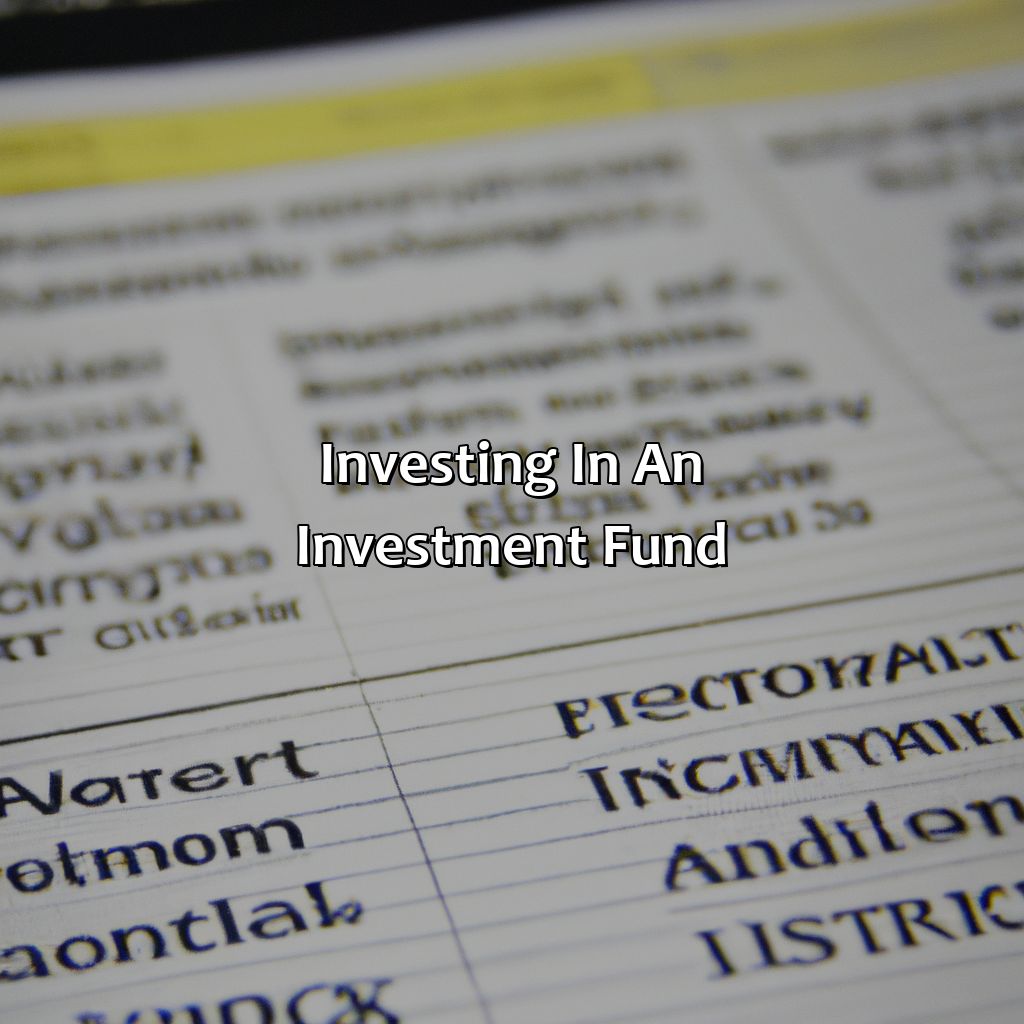
Image credits: retiregenz.com by Harry Jones
Choosing an Investment Fund
When it comes to investing, exploring Investment Fund options can be beneficial. Here’s how to make the right selection.
- Research fund performance and objectives
- Verify portfolio composition
- Identify fund type eg: Equity, Debt, Index, etc.
- Compare fees and expenses
- Analyze fund manager track record
- Assess your own risk tolerance
Considering these aspects will lead you towards choosing a suitable Investment Fund for your financial growth. It’s essential not only to stick to certain parameters but also keep a close eye on market trends and continuously evaluate performance.
A well-diversified portfolio is crucial as it protects you from adverse market conditions. An Investment Fund diversifies the risks and makes sure that there is no over-concentration of sector or stock related risks in the portfolio.
Once a friend was indecisive about investing in an open-end equity fund amidst rising market anxiety. With personalized assistance, they invested through Systematic Investment Planning (SIP). This ensured their investment got spread out over regular intervals while capitalizing on both highs and lows of the fluctuating market trends.
Want to own a piece of the Investment Fund? Just buy a share and watch your money disappear into the abyss of fees and expenses.
Purchasing Shares in an Investment Fund
Investing in an Investment Fund involves buying shares in a professionally managed portfolio of bonds, stocks or other assets. The value of the shares depends on the performance of the underlying assets.
Purchasing shares in an investment fund is possible through a broker, financial planner, or directly from the fund itself. Investors should research funds carefully before committing any capital and must be aware of any fees and charges associated with investing.
Investing in an Investment Fund allows investors to diversify their portfolio without having to deal with individual security selection and management. The diversified approach can reduce risk and potentially lead to higher returns.
After purchasing shares in an Investment Fund, investors can expect to receive regular distributions of income or gains from the sale of assets. These payments can be reinvested back into the fund or taken as cash.
A friend invested her savings through a reputable financial planner into an Investment Fund that aligned with her long-term goals. Over time, she has seen steady growth in her investments despite short-term fluctuations due to market volatility.
Investment funds: like a box of chocolates, you never know what you’re going to get, but at least it’s not a box of snakes.
Risks Associated with Investment Funds
Investment Funds – Risks and Mitigation
Investment funds, like any other investment, come with risks.
- One of the primary risks of an investment fund is the possibility of losing money. Market fluctuations can significantly impact the value of the fund, resulting in losses.
- Additionally, the fund’s performance can be affected by economic conditions, political factors, and company-specific risks.
To mitigate the risks associated with investment funds, it is essential to:
- diversify your portfolio by investing in different types of funds and markets.
- Thoroughly researching the fund and understanding its investment strategy, fees, and historical performance can also help you make informed investment decisions.
- Furthermore, investors need to keep an eye on their investment and make necessary adjustments to their portfolio as market conditions change.
While investment funds offer potential gains, it is crucial to balance the risks and rewards to ensure long-term financial growth.
Pro Tip: Before investing in any fund, make sure to read the prospectus thoroughly, which provides essential information about the fund’s investment strategy, performance, and risk factors. Consult a financial advisor before making any investment decisions.
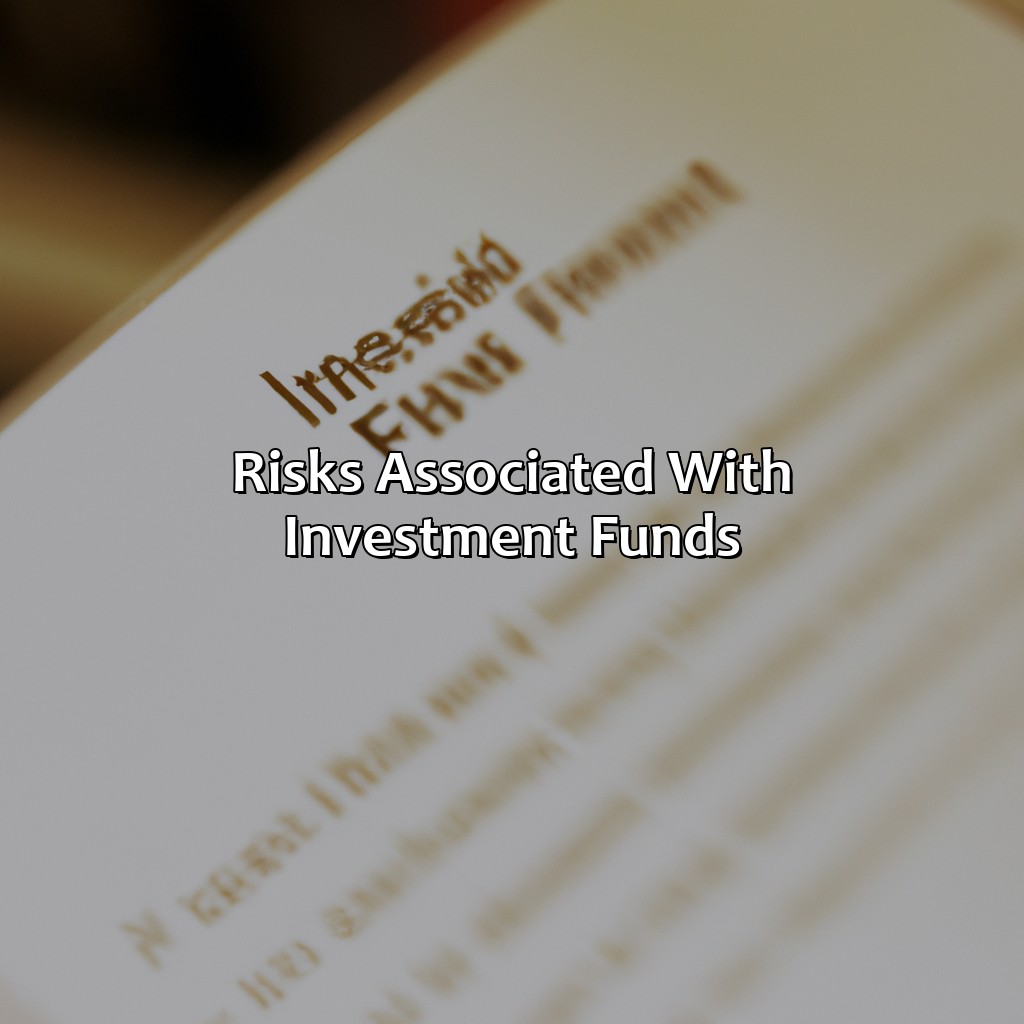
Image credits: retiregenz.com by Adam Woodhock
Five Facts About How An Investment Fund Works:
- ✅ An investment fund is a type of collective investment vehicle which pools funds from multiple investors to invest in securities or other investment assets. (Source: Investopedia)
- ✅ Investment funds are managed by professional investment managers who make investment decisions on behalf of the fund’s investors. (Source: The Balance)
- ✅ Investment funds may be structured as mutual funds, exchange-traded funds (ETFs), or hedge funds, among other types. (Source: Forbes)
- ✅ The performance of an investment fund is measured by its net asset value (NAV), which represents the fund’s assets minus its liabilities. (Source: Fidelity)
- ✅ Investment funds may charge fees such as expense ratios, sales loads, or performance fees, which can impact the fund’s overall returns. (Source: SEC)
FAQs about How An Investment Fund Works?
What is an investment fund?
An investment fund is a type of financial vehicle that pools money from multiple investors to purchase securities such as stocks, bonds, or real estate. The fund is managed by a professional portfolio manager who aims to achieve a specific investment objective.
How does an investment fund work?
Investment funds work by pooling money from multiple investors and investing it in a diverse range of assets. Investors purchase shares in the fund, which represent a proportional ownership in the underlying assets. The fund is professionally managed, and the portfolio manager makes investment decisions on behalf of the investors.
What are the advantages of investing in a fund?
Investing in an investment fund provides several advantages. Firstly, it offers diversification across a range of assets, reducing the risk of loss from any single investment. Secondly, it allows investors to access professional management and expertise. Additionally, investment funds provide liquidity, meaning that investors can buy and sell shares in the fund on a regular basis.
What types of investment funds are there?
There are several types of investment funds, including mutual funds, exchange-traded funds (ETFs), hedge funds, and private equity funds. Mutual funds and ETFs are open to the public and are commonly used by individual investors, while hedge funds and private equity funds are typically limited to institutional investors and high net worth individuals.
How are investment fund returns calculated?
Investment fund returns are calculated based on the change in the value of the fund’s underlying assets over a given period of time. Returns are typically quoted as a percentage and may be reported after fees and expenses are deducted. It’s important to note that past performance does not guarantee future results.
What factors should be considered when choosing an investment fund?
When choosing an investment fund, several factors should be considered, including the fund’s investment objective, performance history, fees and expenses, and the qualifications and experience of the fund’s portfolio manager. Investors should also evaluate the fund’s risk profile and make sure it aligns with their own investment goals and risk tolerance.
